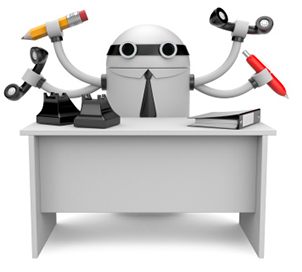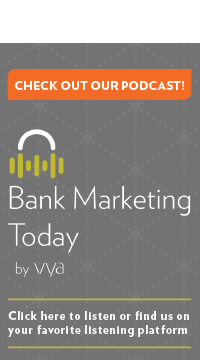 We all have a pretty good idea of what traits we like to see in new employees. There’s a laundry list of cliché adjectives nearly every manager at some point is guilty of pulling from when putting together a job listing. We want our candidates and future employees to be dynamic, motivated self-starters with a passion for whatever their specific role will entail. The point is we know, almost to a fault, what we’re looking for in an employee.
We all have a pretty good idea of what traits we like to see in new employees. There’s a laundry list of cliché adjectives nearly every manager at some point is guilty of pulling from when putting together a job listing. We want our candidates and future employees to be dynamic, motivated self-starters with a passion for whatever their specific role will entail. The point is we know, almost to a fault, what we’re looking for in an employee.
Well, any human employee, that is.
Software and technology have become essential elements of our daily work lives. Sometimes they play a rather passive role in helping us execute our duties, but we’re beginning to see technology systems, like marketing resource management (MRM) and online creative collaboration software, take on a more active role in the workplace. It’s gotten to the point where you can really start to think of these programs as employees in and of themselves.
But, there’s a problem.
In my discussions with prospective companies, I’ve found that there are a good many who aren’t sure what they want or need out of enterprise software, specifically MRM and creative production management systems, as I deal with for Vya. It would almost be like bringing in a candidate to interview and not knowing exactly why you called them in. So with that being said, let’s look at some general characteristics that make enterprise software and technology valuable assets your organization can lean on for success. We’ll look at it through the lens of an MRM system for context, but this list really applies to any software solution.
Software must be flexible.
Things change fast in business. From a marketing perspective, processes you use today may not be the ones you use tomorrow. Software, such as automation technology, needs to have flexible functionality to accommodate unique processes within and across departments to meet unique goals and needs. Just as employees must be dynamic, so must your software.
Software must be integrative.
Software solutions should build bridges across departments, not build silos. The larger the company, the bigger this problem is, but if a program or system has practical application for multiple departments, those departments should be using the same program or system. If possible, bonus points if it interfaces with other technology already in place. Think of this as the “works well with others” trait on a traditional job description.
Software must be adaptable
When you evaluate an employee, you look at their current skills and also how quickly those skills may become outdated (especially for technical positions). So it’s not necessarily their current skills that are important, but how well they can adapt to change and keep their skills relevant. The same holds true with technology. You can’t simply compare a list of features because what you need today may not be the features you need tomorrow. I’ve observed many prospects who knew what they needed today but were at a loss for how to address the unknowns of the future. Software must deliver updates and modifications in a timely manner in order to provide the best possible solutions.
Of course, there are many more traits, features and benefits software should utilize depending on its purpose and how it is implemented, but for a baseline evaluation, you should really start with these three characteristics. Technology has the power to greatly improve your capabilities, but if it isn’t flexible, integrative and adaptable, then it’s only going to hold you back.
Tags: creative production management, integration, marketing technology, marketing resource management, local marketing automation





